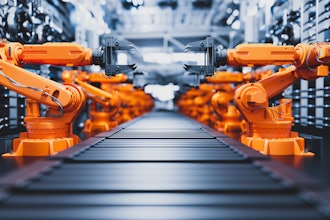
Industrial distributors are always looking for ways to decrease costs, increase efficiencies and margins, improve customer service, and secure a competitive advantage. These efforts often involve adopting and leveraging new and evolving technologies. And few technological advancements in recent memory have offered as much potential, spurred as much interest, and raised as much concern as generative artificial intelligence (AI).
Distributors are harnessing the power of generative AI for a wide range of operational and strategic purposes. The technology is being deployed to improve customer demand forecasting and inventory management, warehouse automation and route optimization, quality control and customer service, content generation, and marketing and communications, among other uses.
No business wants to be on the trailing edge of a transformative technological revolution. But distributors that are early and enthusiastic adopters of generative AI need to understand the potential risks involved when integrating such technology into their operations. Understanding those risks begins with wrapping your head around what generative AI actually is and how it generates and expands the “intelligence” that is its signature achievement.
What Is Generative AI?
Generative AI is based on algorithms that can consume, organize and process nearly all information publicly available online: articles, books, videos, art, images, music, technical manuals, news, etc. Based on a human prompt, AI synthesizes all the knowledge it has obtained from its “training” to generate new content or perform new tasks. What makes generative AI both impressive and terrifying is how natural sounding and looking its outputs are and how much and how fast it appears to be “learning” and expanding its capabilities and knowledge base.
For example, ChatGPT – the most well-known generative AI system – can produce content on almost any subject that reads like a competent writer wrote it. If you ask the program to “write 1,000 words about current economic challenges faced by industrial distributors,” in a matter of seconds, it will produce a relatively well-written and insightful essay expounding on globalization, inventory management, supply chain disruptions, talent shortages and other issues.
Similar programs such as DALL-E2, Bard, sales enablement and text-to-image applications can do the same thing with music, images, art and technical processes.
For distributors, AI can generate contracts and invoices, communicate with customers, automate processes, develop sales forecasts and insights into customer behavior and market trends, and write code, among other benefits.
As distributors continue to explore and expand their use of generative AI, they must also be mindful of the following five risks:
1. Inadequate Quality Control and Inaccurate Output
One of the primary risks distributors face when using generative AI is the lack of control over the quality and output of generated content. While these systems can produce text, images and code, they may also produce inaccurate, biased, inappropriate or off-brand content if not carefully monitored and fine-tuned.
One recent example of misplaced trust in generative AI involved a lawyer who submitted a legal brief composed largely by ChatGPT that included references and citations to non-existent, wholly made-up court decisions. Upon discovering the “ghostwriter” behind the brief, the judge was not amused. Similarly, distributors that rely on the accuracy of AI-generated content can inadvertently disseminate information that contains misrepresentations or falsehoods, which can create potential consumer protection problems or other liabilities.
2. Biased or Prejudicial Content and Conclusions
One of the biggest concerns about generative AI systems is that they have been known to generate content or make choices, adopt processes or reach conclusions that reflect biases present in the data on which they were trained. In the financial services industry, for example, the algorithms used by generative AI have led to discriminatory lending and credit decisions based on existing race, gender or income biases. For customer-facing interactions and communications, in particular, these biases pose significant reputational and financial risks for distributors.
3. Intellectual Property Infringement
Since the knowledge base of generative AI includes countless copyrighted works, distributors that use AI platforms for content creation run the risk of unintentional plagiarism or copyright infringement. AI may generate content that closely resembles existing copyrighted material, leading to legal disputes and potential fines. Several authors and musicians have already filed copyright infringement lawsuits against the company behind ChatGPT. Without careful oversight and manual review, distributors can inadvertently publish and distribute content that infringes on others’ intellectual property rights.
4. Overdependence on Technology
While automation can enhance efficiency, distributors that rely too heavily on AI leave themselves vulnerable to disruptions and delays in the event of technical issues or system failures. If the AI system malfunctions or is unavailable for any reason, the company may struggle to operate effectively.
5. Data and System Security Vulnerabilities
Generative AI systems, like all software, can be vulnerable to breaches and cyberattacks. Hackers who gain access to a generative AI system can manipulate it to generate harmful or misleading content, disrupt business operations or steal sensitive information. Protecting AI systems from cyber threats requires constant vigilance and investment in security measures.
The power and potential of artificial intelligence to wreak havoc has often manifested itself in movies like “2001: A Space Odyssey” or “The Terminator.” While distributors may not have to worry that their use of generative AI will bring about the apocalypse, they should approach its adoption cautiously and thoughtfully to minimize the risk of unintended consequences.
Should anyone have any questions about the legal and business risks associated with the use of generative AI, please contact me at 312-840-7004 or [email protected].
Fred Mendelsohn is a partner at Burke, Warren, MacKay & Serritella PC in Chicago.
The information contained in this article is provided for informational purposes only, and should not be construed as legal advice on any subject matter. The author expressly disclaims all liability in respect to actions taken or not taken based on any or all the contents of this article.























